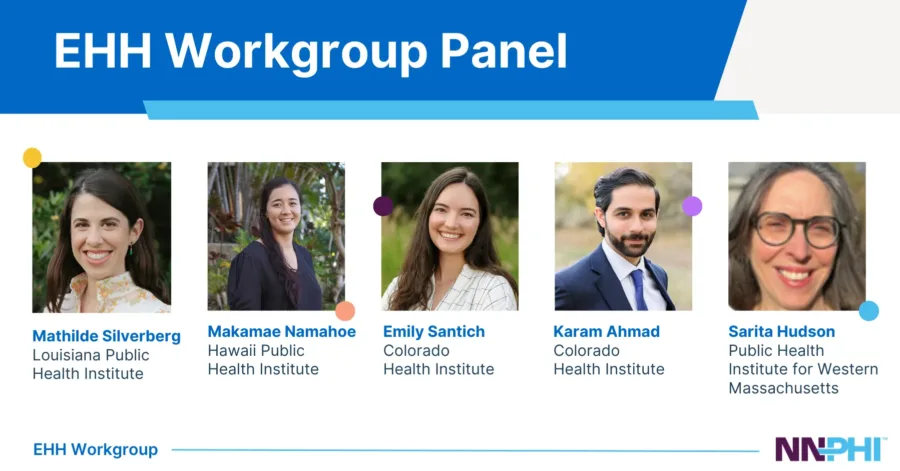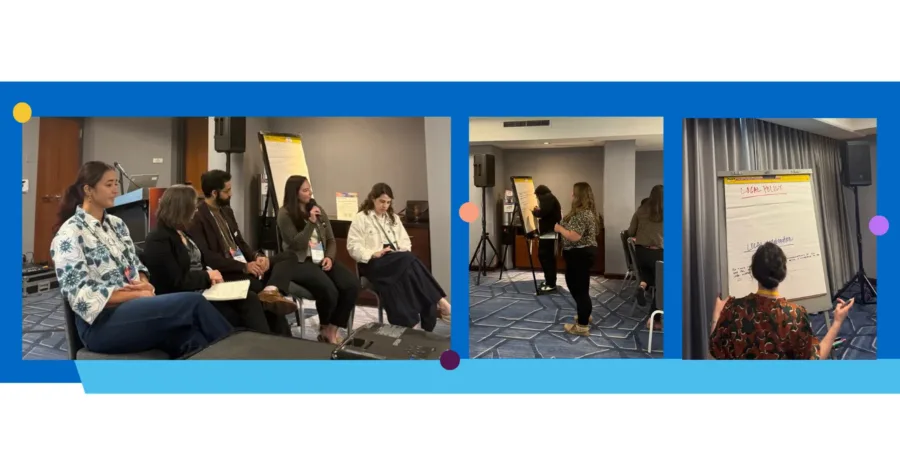NNPHI’s Environment and Human Health Workgroup hosted a panel discussion at the 2025 NNPHI Annual Conference. The session ‘Future-Oriented Climate Action: Empowering Local Communities’ featured members of the workgroup.
Future-Oriented Climate Action: NNPHI Workgroup Leads the Conversation

With a focus of three main topics- funding, local policy, and local collaboration – the panelists shared their current work, partnerships and priorities for environment and human health work within their public health institutes. After a dynamic discussion from the panelists, the facilitator encouraged attendees to write down active projects and any needs that the workgroup could support in the future.
The main takeaways for each topic were:
Funding
- Develop financial modeling to forecast the impact of future events on communities.
- Apply business approaches to ensure environmental health funding.
- Address funding to respond to environmental disasters, or emergencies, becomes available post-disaster, with limited funding available for prevention. More capacity is needed to support how to best leverage emergency preparedness funding in environmental health.
Local Policy
- Highlight the Health Environment for All (HEAL) Act in Washington State as a model environmental justice law. State and local laws and regulations to protect the environment and advance environmental equity are examples of what different levels of government can do to ensure funding is maintained to advance climate resilience work.
- Establish building performance standards to encourage electrification.
- Provide education and information highlighting green infrastructure policies – green schoolyards, green alleys, rainwater harvesting, etc., available to different stakeholders.
- Strengthening communication is essential. There needs to be messaging support for connecting with communities on climate impacts (how to generate buy in), which is an opportunity for public health institutes.
- Expand education for building contractors and HVAC professionals around heat pumps and other low-carbon emitting technologies are necessary across jurisdictions.
Local Collaboration
- Build better workforce pipelines specific to environmental health, climate mitigation and resiliency, and alternative technologies.
- Lead with collaboration, resource sharing, the power of unity, and a commitment to collective interest.
- Foster public and private partnerships to further the goals of the community are needed. Public health institutes should explore these opportunities.
- Prioritize and address issues during environmental disasters that are meaningful to their communities in ways that are not minimally burdensome on residents.

NNPHI’s Environment and Human Health Workgroup looks forward to engaging with the network on these, and other, topics of interest, pulling together stories, examples and solutions during a complex time of funding and climate uncertainty.
